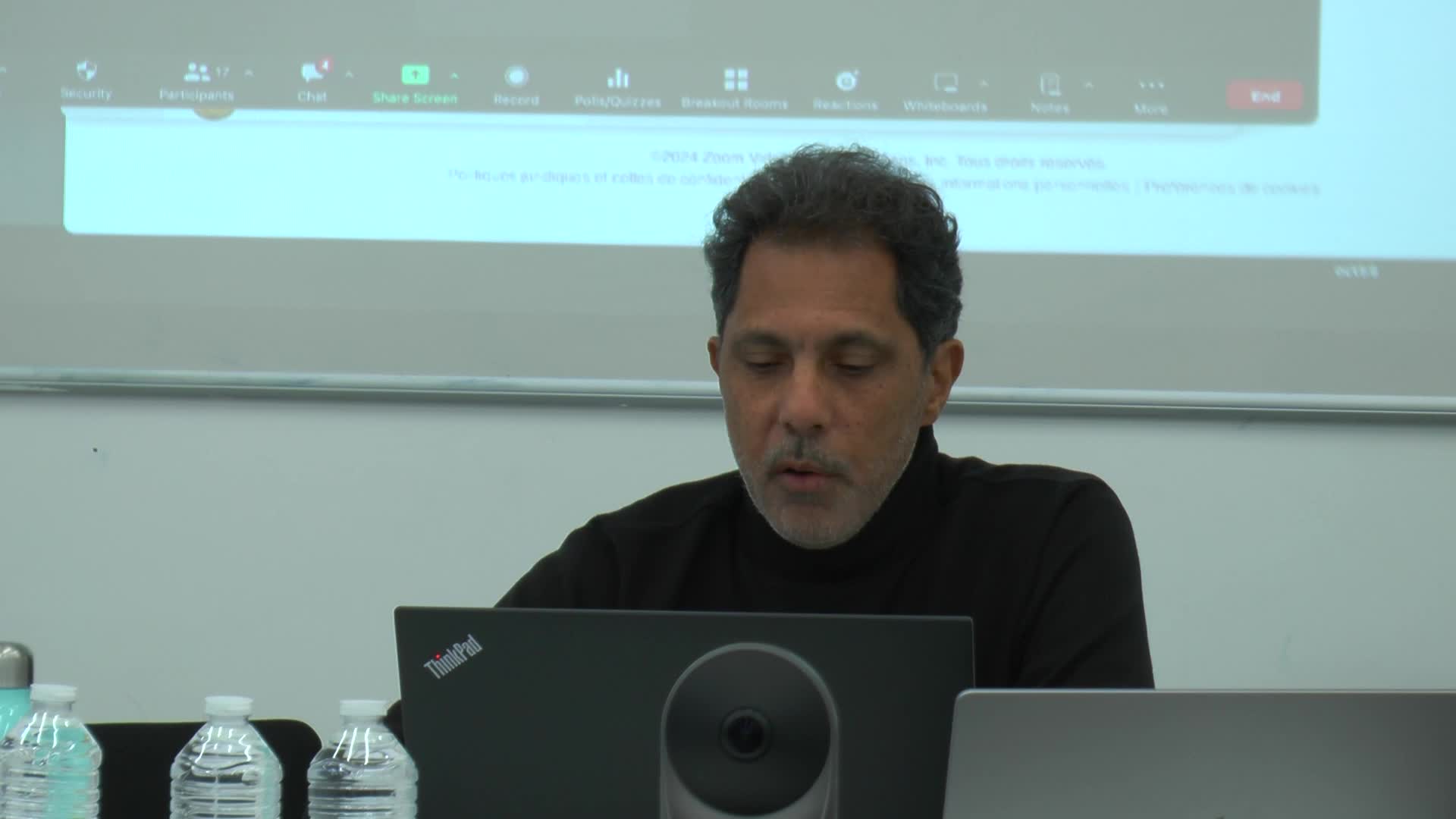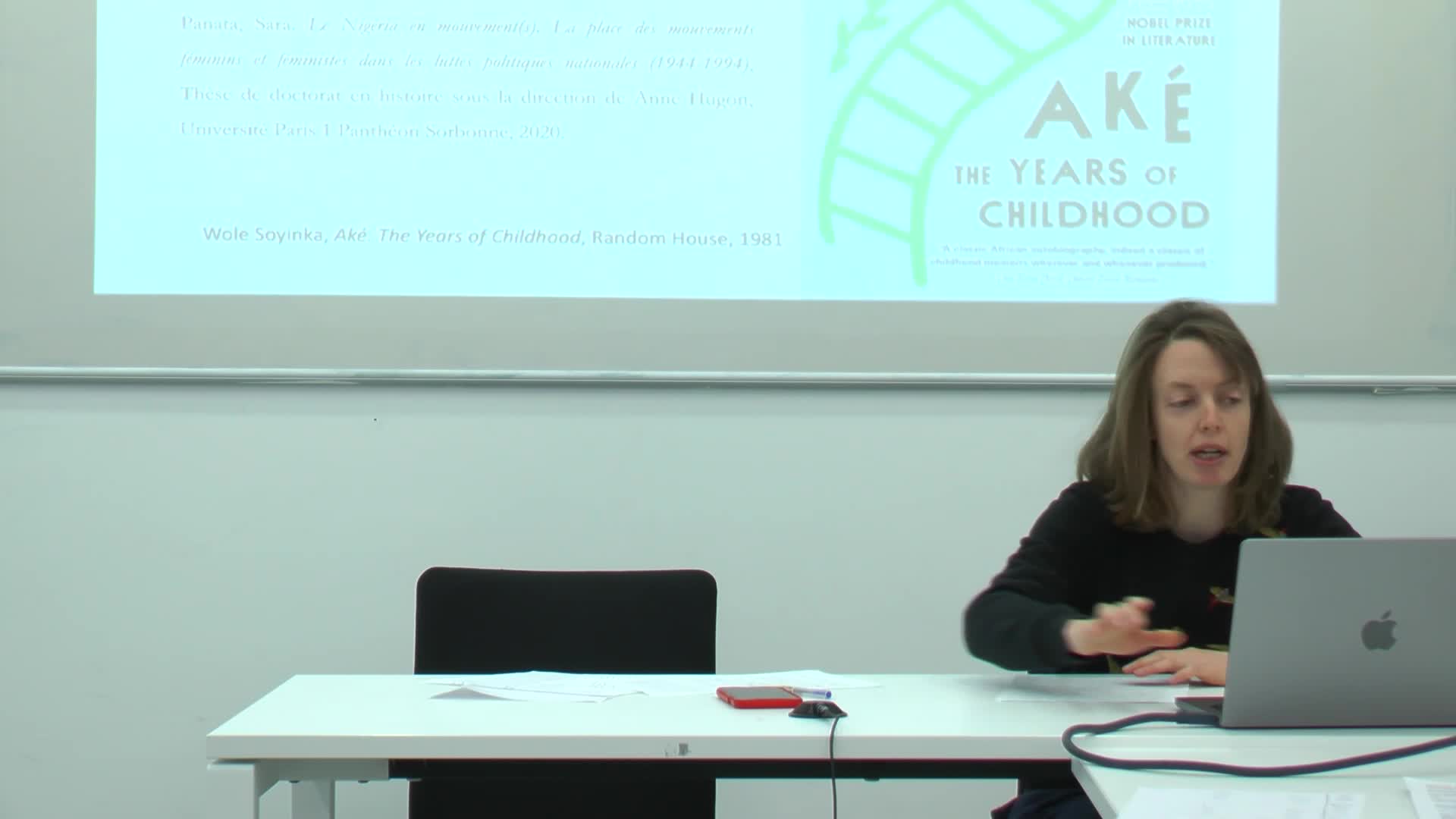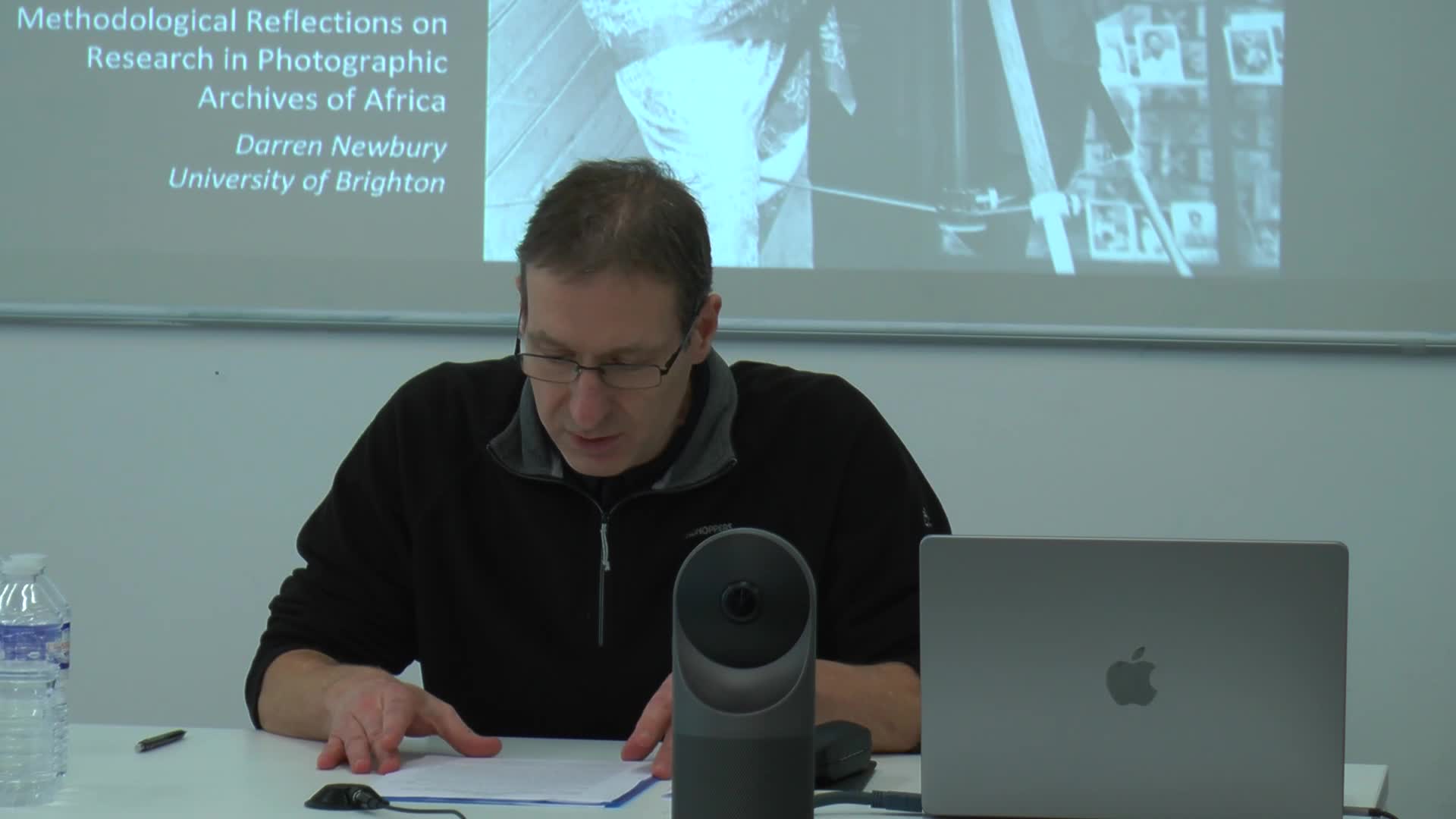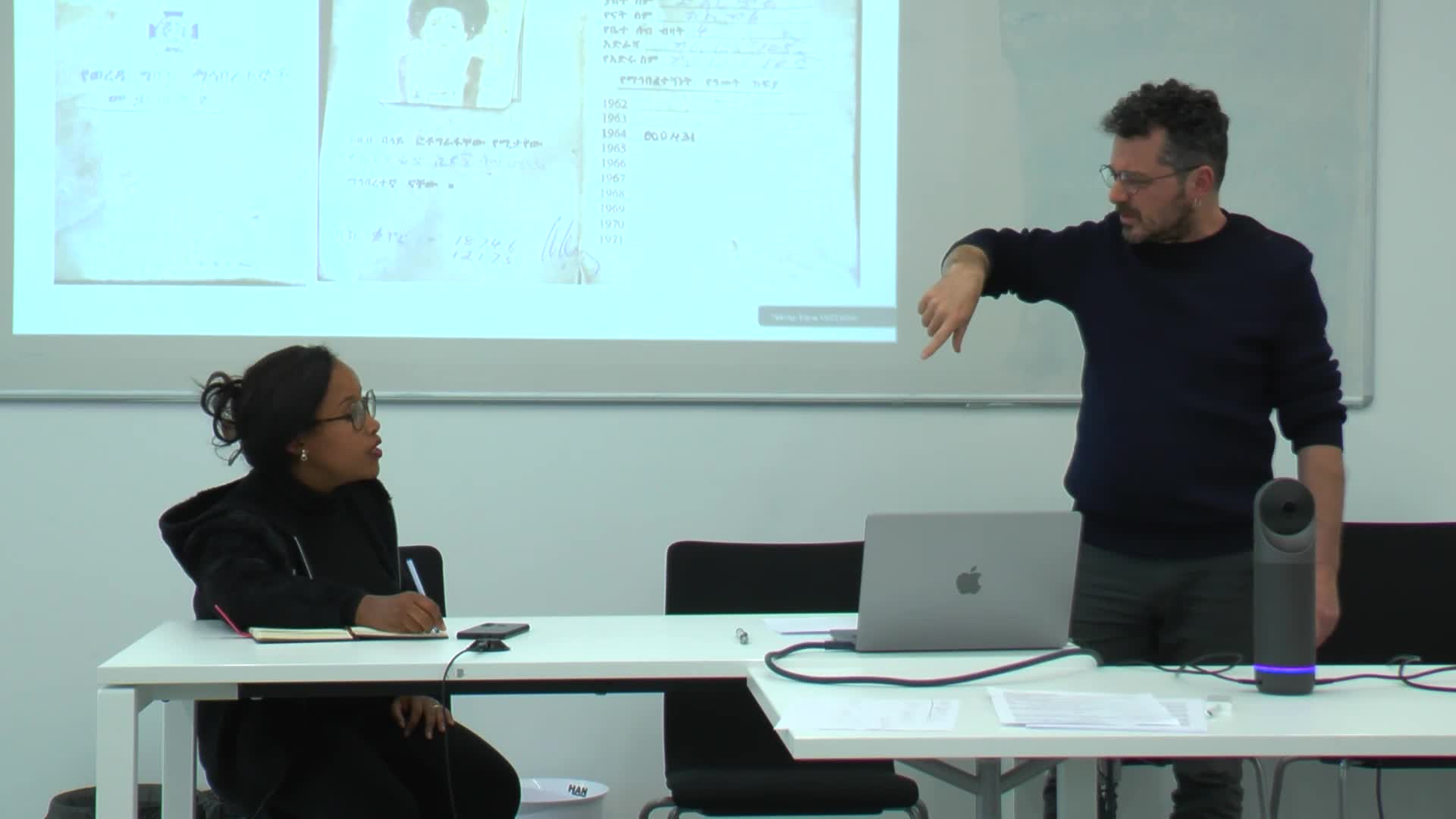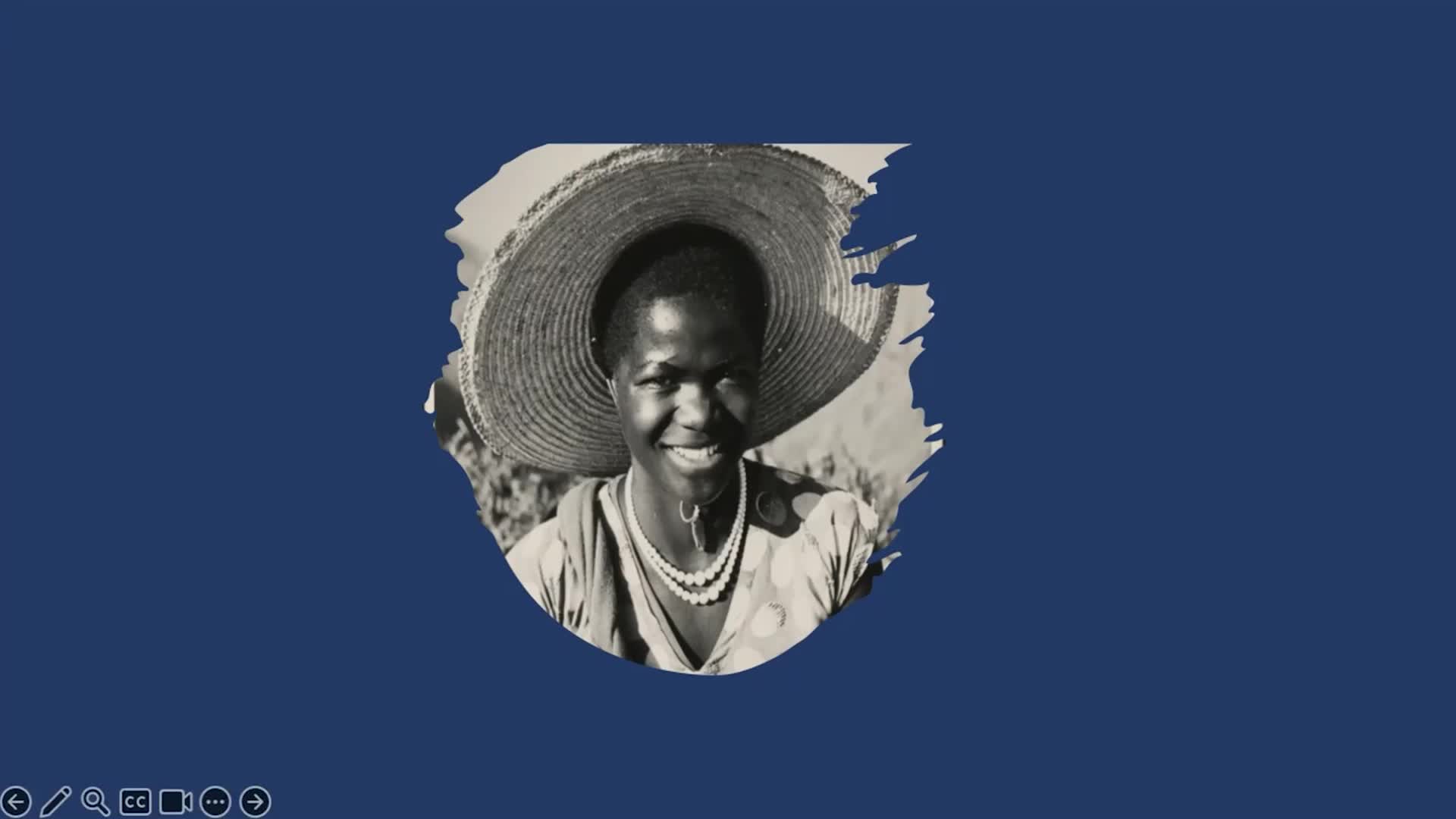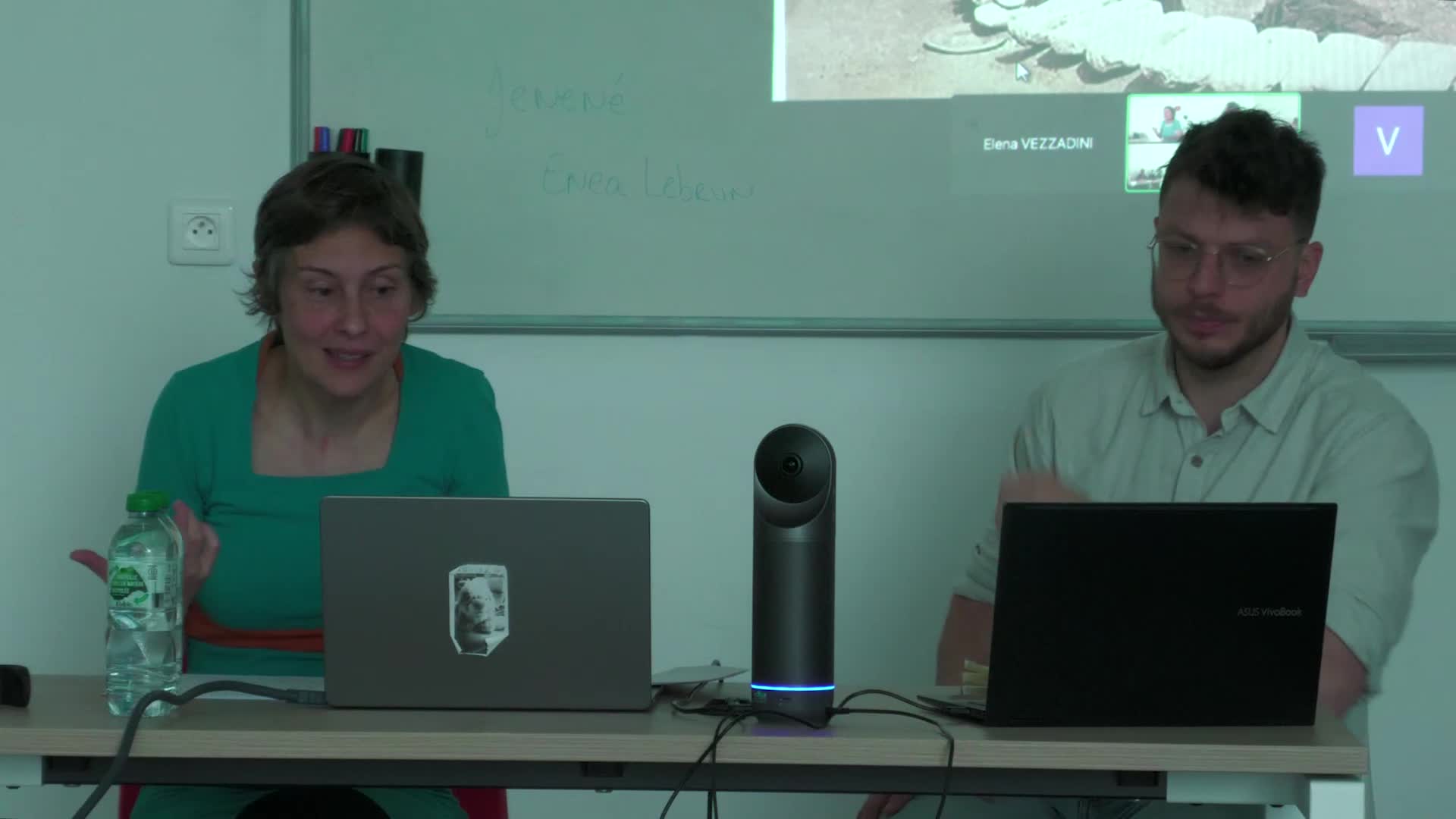Notice
Creative Methodologies - Writing the stories of working women from popular classes in African urban milieux, 1920 - 1970 - Partie 3
- document 1 document 2 document 3
- niveau 1 niveau 2 niveau 3
Descriptif
Creative Methodologies - Writing the stories of working women from popular classes in African urban milieux, 1920 — 1970 = Écrire les histoires de femmes travailleuses issues des classes populaires dans les milieux urbains africains, 1920 — 1970 - Partie 3
Felix Meier zu Selhausen, Utrecht University
Gender Inequality and Urban Elite Formation: New Insights from Parish Registers in British colonial Africa
Using educational and occupational statistics derived from 30,000 marriage registers obtained from six major cities in British colonial Africa, we show how early colonial mission education helped African men access formal labour. Women were relegated to informal and homemaking activities instead, even if mission schooling facilitated their social mobility via marriage. The early-colonial rise in gender inequality was followed by a remarkable decline herein after World War II helped by the Africanization and feminization of the civil service alongside Western women’s liberalization movement. This process was relatively faster in West Africa where women’s pre-colonial economic independence contested colonial ideals of domestic virtue.
Filipa Ribeiro da Silva, International Institute of Social History, Amsterdam
Searching for African Women’s Urban Occupations in Colonial Censuses: Preliminary Reflections and Comparisons
In this presentation I will address the following questions: i) how can we use colonial censuses to study women’s urban occupations? ii) what are possible alternative sources to complement or replace colonial censuses? and iii) how can we classify urban occupations? To tackle these lines of enquiry, I will discuss the potential and limitation of European colonial censuses for the study of urban occupations of African women, from the late nineteenth to the last quarter of the twentieth century. In addition, I will be looking into some alternative source to complement information on colonial censuses, or to fill gaps in periods when censuses were not carried out by colonial authorities or by African governments after independence. To close my talk, I will also discuss some of the most used systems of occupational classification, pointing how their strengths and weaknesses. While doing so, I will pay special attention to their application to examining gender variations in occupational structures over time and classification of female urban occupations. Most of the data that I will be presenting and discussing will be drawn from Portuguese colonial censuses done over the twentieth century given my previous experience with source materials from various territories formerly under Portugal’s rule. However, comparisons with other colonial censuses and other source materials will be done whenever possible.
Tim Gibbs, University of Paris Nanterre
The Widows of Warwick Junction Pavement Markets (Durban, South Africa): Studying Commercial Networks in a Time of Crisis
Some decades ago, as a young Development Studies MA student newly arrived in Durban, my class was taken to visit a groundbreaking project at the downtown transport hub at Warwick Junction. Here we saw how poor vulnerable female street traders who colonised the pavements as apartheid spatial segregation collapsed, had recently been provided municipal facilities by a progressive post-apartheid city-hall. As I soon realised, for the sorts of international policymakers who toured the Global South in search of examples of spatial justice, Durban was a laboratory of attempts to produce a fairer ‘compact city’ out of the crisis of apartheid. This paper will ask what sorts of knowledge about South African street traders has been produced by this nexus of radical researchers, policy-makers and activists? And what are the lacunae of this research agenda – especially when South Africa is compared to the classic studies of West African city markets?
Domenico Cristofaro, University of Bologna
Creative Mobilities: Introductory Thoughts on Migration, Infrastructure Development and Market Traders in Colonial Northern Ghana
The history of migrations in Ghana is closely tied to the flows of male migrant laborers who, since the early decades of the twentieth century, moved from the north to work in the cocoa fields or gold mines in the south. These migrations were facilitated and supported by both the colonial state before independence and the postcolonial state after independence. However, many women also participated in these migrations, yet the literature and primary sources are notably silent about them. This presentation aims to better contextualize the issue and propose some research perspectives to overcome this reticence. Specifically, the presentation will examine how infrastructural changes in mobility between the north and south of the country, as well as urbanization, influenced the success and careers of female traders from the North. Additionally, it will suggest research paths to explore how the professional ethics and networks developed by these women, in turn, influenced mobilities and the commercial growth of the northern regions of Ghana.
Intervention / Responsable scientifique
Thème
Documentation
Dans la même collection
-
Creative Methodologies - Writing the stories of working women from popular classes in African urban…
NieftagodienNoorDarkwahAkosua K.Écrire les histoires de femmes travailleuses issues des classes populaires dans les milieux urbains africains, 1920 - 1970 - Partie 1
-
Creative Methodologies - Writing the stories of working women from popular classes in African urban…
HunterEmmaBerthoElaraSharkeyHeather JaneSharifMariamÉcrire les histoires de femmes travailleuses issues des classes populaires dans les milieux urbains africains, 1920 - 1970 - Partie 5
-
Creative Methodologies - Writing the stories of working women from popular classes in African urban…
NewburyDarrenHeuvelDanielle van denÉcrire les histoires de femmes travailleuses issues des classes populaires dans les milieux urbains africains, 1920 - 1970 - Partie 2
-
Creative Methodologies - Writing the stories of working women from popular classes in African urban…
HugonAnneSahledengilTirsitGuidiPierreVezzadiniElenaÉcrire les histoires de femmes travailleuses issues des classes populaires dans les milieux urbains africains, 1920 - 1970 - Partie 6
-
Creative Methodologies - Writing the stories of working women from popular classes in African urban…
NyantoSalvatory S.SimbaAlmaWorku KebedeDanielTiwaah Adu BohaenJulietÉcrire les histoires de femmes travailleuses issues des classes populaires dans les milieux urbains africains, 1920 - 1970 - Partie 4
Avec les mêmes intervenants et intervenantes
-
Introduction: Uncovering the History of Women from Photo Archives: the Examples of the Colonial Arc…
VezzadiniElenaCristofaroDomenicoIntroduction: Uncovering the History of Women from Photo Archives: the Examples of the Colonial Archives of Ghana and Sudan


